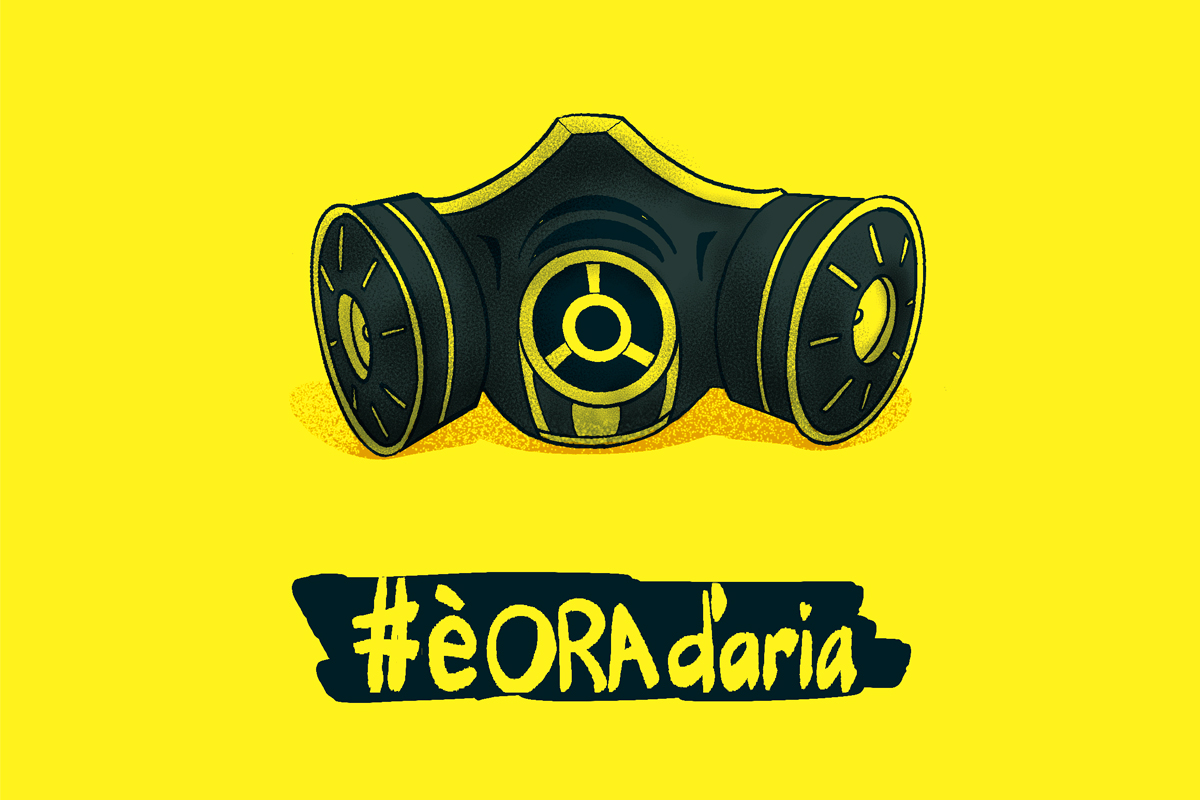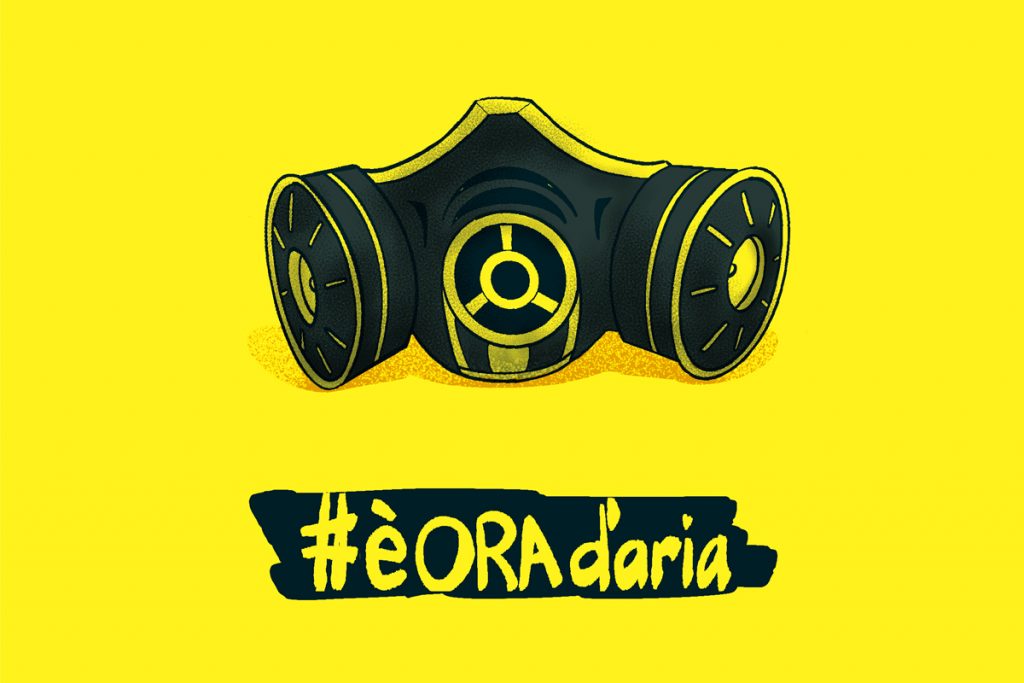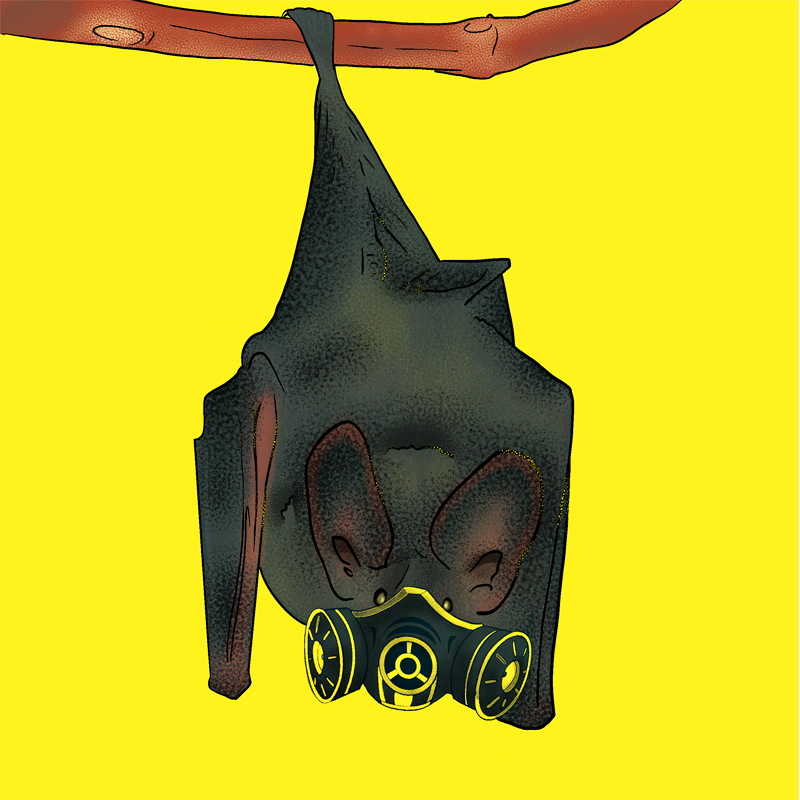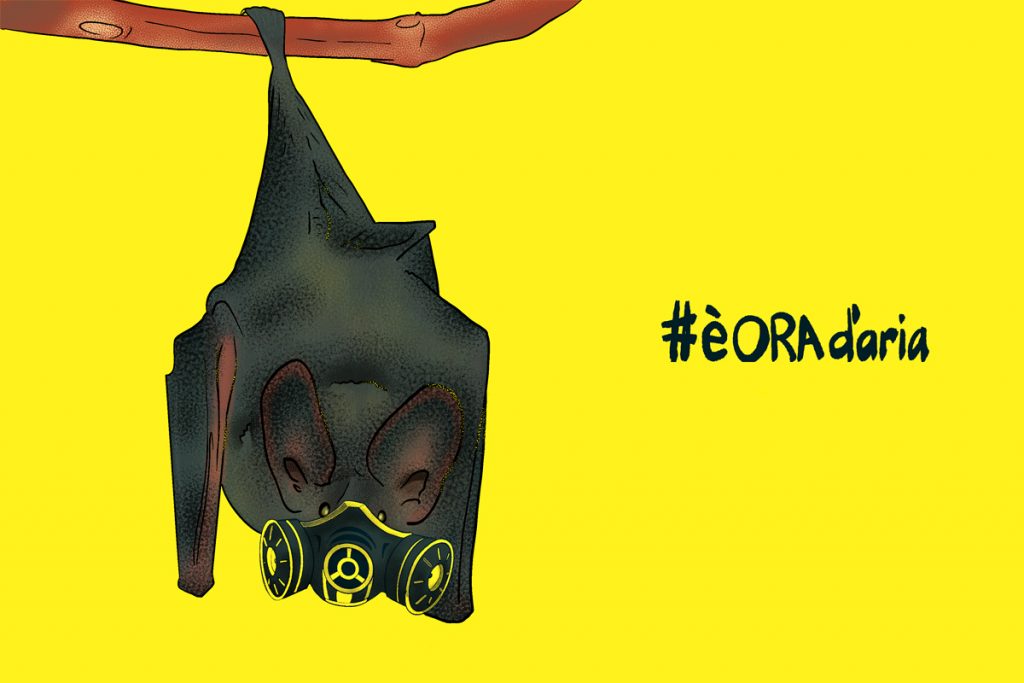
The Venetian blinds break down the light that filters through the window, separating it into thin and tidy gold foils.
The wall where my bed stands against is crossed from side to side by a fissure, opened years ago and relentless increased, like the desert. Maz is not in his bed. I don’t know whether he woke up early again or he passed all night in front of the computer. I woke up and joined him in the living room. He greets me without looking away from the screen.
«There is some coffe in the coffee maker»
I poured some into a tiny cup. He’s really good at making coffee.
«When all this mess will ends, I’ll take you to have coffee in a bar that I know, someone who used to be a thief managers it now. He makes the best coffee in town, I swear that sooner or later I’ll take you there»
I hear him smiling without turning around.
«Inshallah»
Maz comes from Morocco. His name is Mohammed Aziz, he was born in Marrakech but grew up here. He moved with his family when he was four. His father breaks his back in the logistics and he’s one of the most active in the Union. Since the Pandemic started he has been reported several times for roadblocks and strikes.
Maz doesn’t talk a lot. Least of all in Moroccan; the only word he repeats is «Inshallah». He says it when he wants something badly, when his hope materializes and turns three-dimensional, when his feelings fill the room in place of the words he’s unable of saying.
«What’s up?», I ask.
He moves the chair away from the desk, then stretches his arms and presses enter.
«Thousands more dead. Many doctors and nurses. The new Decree establishes the arrival of special forces. In addition, we all must download an App on our phones that informs the Government in real time of our movements. If your phone sticks to a cell far from your residence, a report will be sent»
«We’ll leave the phone at home – just to put it out there, to look optimistic – The others?»
«I think they are sleeping»
Daria comes at the door already wearing camouflage. She gets the mask from the sill and remains a moment staring at it.
«I need to go out»
«There are special forces around, and all the informers»
«I know, I heard of it. But I need to go and see Evelyn»
When Daria decides on anything it’s impossible to make her change her mind. We stayed there, staring without speaking, without finding the strength to stop her or saying bye.
«I’ll be back soon» she said.
«Inshallah» replied Aziz, continuing writing on the computer.
In Italy the sanitary crisis, determined by the coronavirus emergency, was highly conditioned by the situation of the SSN (Health National Service), caused by the political choices brought ahead for the last 20 years.
Two main problems emerged for the hospitals dealing with coronavirus are:
– hospitals overloaded for the lack of beds, mostly in intensive care unit;
– the failure to grant safety of health workers, who ended up infecting other patients and their families.
From the crisis of 2008 began a period of fiscal contraction that lead to the weakening of the SSN. Nevertheless It kept on working as long as the situation was in normality.
In front of the sanitary emergency, all the problems bound to the dismantling of the Italian health system, such as staff cuts, closure of departments, the inefficient technological innovation, tax evasion of hospital directors.
The so-called “Cura Italia” Decree has the arrogance to lie on this, by letting us believe that the engagement of 100 medical operators and a last-minute-loan (that cannot compare the amount expropriated in the last 10 years) could be enough to handle the pressure of these days.
WHO gave a model of the pandemic diffusion, informing various countries to permitt an organization of a management more conscious, immediate and preventive of the coronavirus emergency.
Italy has a political responsibility of ignoring the problem until the virus spread in a capillary manner in the north, right where paradozically, there are centers of excellence of national public healthy structures.
The governmet, aware of the healthcare deficiencies, did not consider protecting the lives of the people who moved across the country since the pandemic exploded. They also ignored the directives for the containment of the emergency coming from China. There, were to everyonefrom the start, this lead the first country affected by Coronavirus to reach practically 0 positive swabs per day.
A high percentage of deaths and positives per swab would indicate that the level of contagion is much bigger than what we know, but in this case, the absence of staff in laboratories and the bad management by the government, are playing a central role.
From one side, we hear the same politics which couldn’t manage Covid-19 spending a lot of words in of thanks the health professionals. It’s many years now the same were abandoned with few means available. It wasn’t him, Giancarlo Giorgetti, talking about the abolition of general practitioners, until last summer?
Here, in Campania, we are assisting at authoritarian deviations of “Sheriff” Vincenzo De Luca, whom, while demanding for “Flame Thrower Carabineers”, he’s ignoring that his Region is the last on the national territory in population/swabs relationship carried out. But actually it’s easier, evidently, let us believe that we are in war since the last ten years of cuts in the healthy system were reinvested in defense and weapons, and, that the problem must be managed as a social problem with repression, rather than reveal the real origin.
At the same time, Cuba is sending healthy helps in Venezuela and is preparing also to support Italy. This is happening because Cubans, more forward-looking than Italians since ever about the importance of a public and free health that works, are not buying patent for an hypothetical vaccine, condemning to death the rest of the world, as our U.S. friends are doing. The same Americans we are supplying of masks. Yes, just those masks that lack in our hospitals since the emergency has started. The same Americans who sanction Teheran, while is busy in facing the death of his brothers and sisters.
But let’s go back to Italy for a while and let’s compare some numbers emerged during the investigation on health system. At this time the preventive measures put in place, especially in the south of Italy, has a principal role in avoiding the complete collapse of the system. Considering that the most part of regions in the south are subjected to debt repayment plans.
In 2017, 42% of the total resources for the health have been spent in the north of Italy, 20% in the centre, 23% in the south and 15% in regions with special autonomy. To understand better this point we must take into consideration the national average data on beds available in public structures, which is 2,5 every 1.000 inhabitants, except for Friuli-Venezia-Giulia, where the bed are 5 every 1.000 inhabitants (this is the only region that respects the WHO regulations).
In South-Italy, more than 50% of families renounced in the last years to heal, due to long waiting times or to the cost for medical visits, in the North we talk about 21%, but this is not a data that hearten us. For all these reasons, in the last years, more and more families turned to private clinics to monitor their own health, although the cost is higher. This is happening mainly because of a long time of waiting but also because of the inefficiency and the extreme bureaucratization of the service, which makes difficult the accessibility. Another important element to underline is certainly that public and private more than having different times and organizations, they finance and regenerate themselves on different assumptions: while private clinics earn accreditations and subsidies from the number of performances and admissions, the public ones remain on a level of prevention. For that reason the number of units that close, especially in small centre, is very high.
At this time, on a population of 60 millions of inhabitants, there are 5090 beds in intensive care unit, so there are 84 beds for each million of inhabitants. A number which is absolutely insufficient and evidently unfit to handle an health emergency. Even more alarming if confronted to other countries (in Germany beds in intensive care unit are 28.000). In accordance with WHO, in Italy we passed from 922 beds in 1980 to 275 in 2017. We find the same not very reassuring numbers regarding operators in public structures. According with Censis data, from 2009 to 2017 the healthcare personnel has been halved of 46.000 units (8.000 doctors and 13.000 nurses).
Conforming to the national federation Order of Nursing Professions in 2023 we will have 58.000 fewer nurses. In 2028 about 71.000 fewer. In 2025 is expected a shortage of 16.500 doctors. But where did the investments of more than 37 billions of euro that disappeared from the expenses destinated for the health system? The 70% was invested in Defense: with 14 billions were purchased 90 F35 fighter-bombers (each costs 185 millions, that means 5.000 lung ventilation systems).
What we expect for sure, from now on, is that the scientific community put herself at the service of the public health care, so that searches can lead to an advancement of knowledge for the annihilation of the virus, that swabs were done to as many people as possible so that we can control and prevent the advancing of infections, that private hospitals can be available to everyone and that a lot of money would be invested in research and in the renovation of the medical facilities and machinery available.




